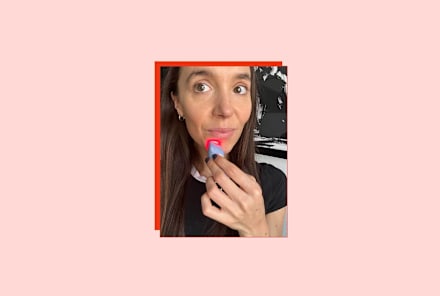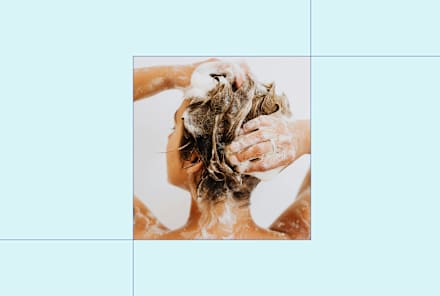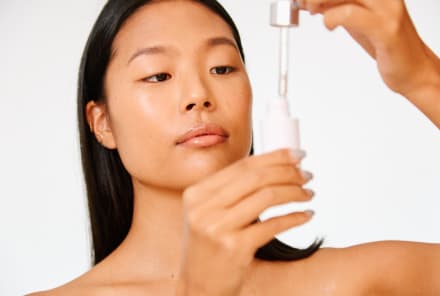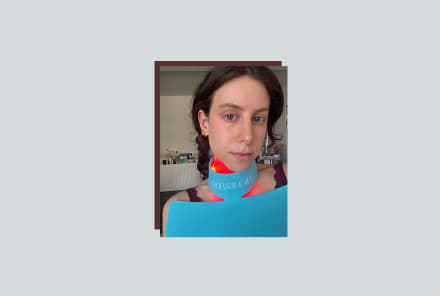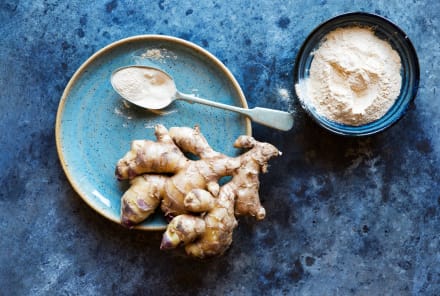Advertisement
Tune In: How An Integrative Dermatologist Wants You To Care For Your Skin


The skin is a complex and complicated organ. So helping people get to know their skin—what it reacts to, how daily choices affect its appearance, and how other parts of the body influence it—is no small feat.
But that's what board-certified integrative dermatologist Apple Bodemer, M.D., tries to do with her practice.
"Sometimes people want the most aggressive drug that can clear up [their skin condition] in three days. But other times people really want advice about the lifestyle choices that can impact their chronic condition," she says. "Looking at the skin as separate from every other organ is one of the biggest mistakes from a medical standpoint. The skin is a reflection of what's going on inside. Compartmentalizing doesn't help patients."
In this episode of Clean Beauty School, I chat with Bodemer about the importance of sleep for skin, how to heal your skin through the gut, whether you really need to use only clean beauty products, and so much more. It's one of my favorite episodes to date—so tune in to hear all of Bodemer's sage wisdom:
Support your gut health
By now the concept of the gut-skin axis1 has hit the mainstream and is no longer a niche wellness concept. Dermatologists, physicians, beauty editors, and consumers alike have a general knowledge that the health of the gut is deeply entwined with the appearance of the skin.
The research surrounding the diet and skin connection is still evolving and growing. But the core pillars of nutrition are usually those that are time-tested.
"Eat as many plants as you can fit into your diet," she says. "Try to reduce foods that cause inflammation. And focusing on fiber. I think fiber is one of the unsung heroes of nutrition."
Folks should also focus on growing their microflora diversity, although much more research is needed to understand how best to do that. "Unfortunately, at this point we don't have great ways of identifying the ways in which someone's gut microflora is altered and how to fix it because so much of our gut microflora is established at birth," she says. "But diet is one of the biggest influences, including diets high in fermented foods."
She pointed to a recent study showing that consuming fermented foods had a hugely beneficial impact on gut microbiome diversity. "Other cultures have been doing this for ages, but we don't really eat a lot of fermented foods," she says. "And when we do it's usually not fermented in a natural way that would have the probiotics that we really need."
However, as we discuss in the episode, diet and nutrition are very personal to the individual. These are just broad-stroke tips—to get into specifics of what might work for you, please consult with your health care practitioner.
Use clean products (but you don't have to be rigid)
When we got on the subject of clean products, her take was refreshingly flexible. "We don't have to be quite so rigid with everything that kind of goes on or in," she says.
While it's important to think critically about how you care for yourself, it doesn't need to be perfect. Ultimately, that's just unrealistic.
"For the most part, people understand that what we put into our body has an impact on how we feel. But what we put on our skin matters too, as some of it can get absorbed," she says. "I'm not crazy, and I don't think everyone has to use only five ingredients. But you do want to minimize the toxic load you're putting on your body."
And as long as we're healthy in other ways, our bodies are usually well-equipped to handle much of what our skin is exposed to.
"We all make choices: When we're taking care of our health and well-being in other ways, we can tolerate some toxicity. So if someone is eating a lot of fruits and vegetables and supporting their body's natural detoxification systems, then we can pick and choose with a little more flexibility," she says.
And for Bodemer, living a cleaner lifestyle isn't all or nothing. "For example, for me it's waterproof mascara. I've tried so many mascaras, but they all leave that shadow under my eyes. The one I'm using isn't the cleanest, but it stays put. Although, the makeup remover that I use is a plant-based oil," she says.
But the one product Bodemer is adamant about? Sunscreen.
"If you're going to invest in any skin care product, invest in a really good sunscreen that feels good on your skin and that you're going to use," she says. "People will throw all kinds of anti-aging products on their skin, but if they're not wearing sunscreen, or wearing a hat and sunglasses when outdoors, then you're fighting an uphill battle."
Check out our favorite sunscreens here, which were reviewed by Bodemer.
Address the quality of sleep
Mental health has a profound impact on our skin. Stress and the stress hormone cortisol wreak havoc on the skin in many ways. They damage collagen, break down the skin barrier, and can lead to breakouts.
But it can be challenging to discuss mental health with folks—so typically where Bodemer starts is sleep.
"When people are struggling with mental health, sleep gets disrupted. And then disturbed sleep can actually feed into mental health issues. These two are tightly intertwined," she says. "People are very resilient. We can handle a lot of stress, but most of us will have a tipping point. It's really important that people hear these messages."
Watch Next
Enjoy some of our favorite clips from classes
Enjoy some of our favorite clips from classes
What Is Meditation?
Mindfulness/Spirituality | Light Watkins
Box Breathing
Mindfulness/Spirituality | Gwen Dittmar
What Breathwork Can Address
Mindfulness/Spirituality | Gwen Dittmar
The 8 Limbs of Yoga - What is Asana?
Yoga | Caley Alyssa
Two Standing Postures to Open Up Tight Hips
Yoga | Caley Alyssa
How Plants Can Optimize Athletic Performance
Nutrition | Rich Roll
What to Eat Before a Workout
Nutrition | Rich Roll
How Ayurveda Helps Us Navigate Modern Life
Nutrition | Sahara Rose
Messages About Love & Relationships
Love & Relationships | Esther Perel
Love Languages
Love & Relationships | Esther Perel
What Is Meditation?
Box Breathing
What Breathwork Can Address
The 8 Limbs of Yoga - What is Asana?
Two Standing Postures to Open Up Tight Hips
How Plants Can Optimize Athletic Performance
What to Eat Before a Workout
How Ayurveda Helps Us Navigate Modern Life
Messages About Love & Relationships
Love Languages
Advertisement
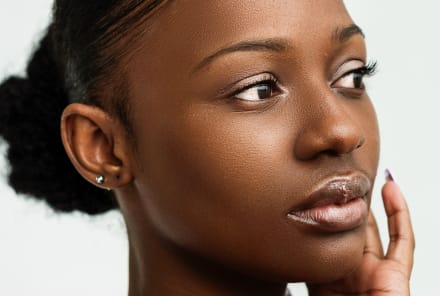
We Need To Talk About Toxic Femininity In Beauty: Ever Encounter These Examples?
Perpetua Neo, DClinPsy

We Need To Talk About Toxic Femininity In Beauty: Ever Encounter These Examples?
Perpetua Neo, DClinPsy

We Need To Talk About Toxic Femininity In Beauty: Ever Encounter These Examples?
Perpetua Neo, DClinPsy

We Need To Talk About Toxic Femininity In Beauty: Ever Encounter These Examples?
Perpetua Neo, DClinPsy

